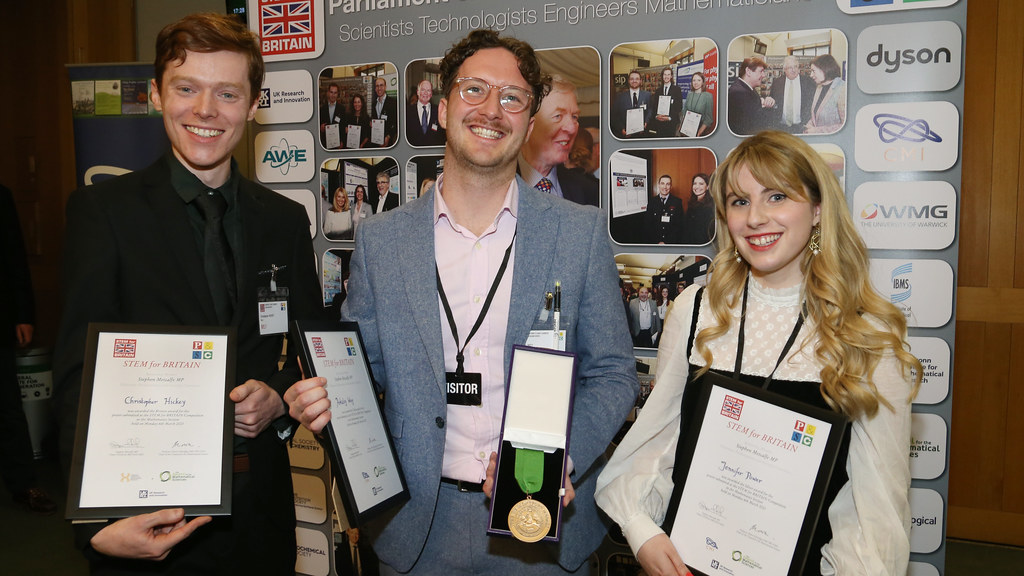Jennifer Power, a mathematics PhD student at the University of Bath, has won silver at a maths competition in the House of Commons. Her work focuses on optimising radiotherapy cancer treatments.
Jennifer presented her research to dozens of politicians and a panel of expert judges, as part of the poster competition STEM for BRITAIN, on March 6. Her research was judged against 19 other shortlisted researchers’ work and emerged as one of the three winners.
Jennifer said, “Winning feels surreal but I’m really pleased my efforts to communicate science clearly have been rewarded. “Science communication is so very important – it’s vital that we work to bridge the gap between academia and the public, so that we can limit misinformation and continue to spread awareness of significant research.”
STEM for BRITAIN aims to help politicians understand more about the UK’s thriving science and engineering base. It rewards some of the strongest scientific and engineering research taking place in the UK.
Stephen Metcalfe MP, chair of the Parliamentary & Scientific Committee, said: “The Parliamentary & Scientific Committee is delighted to sponsor the mathematics awards. This annual competition is an important date in the parliamentary calendar because it gives MPs an opportunity to speak to a wide range of the country’s best young researchers.
“These early career engineers, mathematicians and scientists are the architects of our future and STEM for BRITAIN is politicians’ best opportunity to meet them and understand their work. Given the volume of applications each year, just to have a poster in this final is an achievement. Do be proud.”
Ulrike Tillmann, president of the London Mathematical Society, director of the Isaac Newton Institute for Mathematical Sciences, and speaking on behalf of the Council for the Mathematical Sciences, said: “The physicist Eugene Wigner famously commented on the ‘unreasonable effectiveness of mathematics’. So when we are looking for new and powerful ideas in the new fields of data science, and we are faced with difficult problems in medicine, national security, and artificial intelligence it is more than likely that the mathematical sciences will be a fundamental part of the solution.”
Martin Bridson (president of the Clay Mathematics Institute) praised the “beauty, power and universality of mathematics”, adding that events such as STEM for BRITAIN help “support Britain’s commitment to the sciences”. The final representative of the maths community, Geoffrey Grimmett (chair, Heilbronn Institute for Mathematical Research) added that “mathematics is the best training for life”.
Judged by leading academics, the gold medallist receives £1,500, while silver and bronze receive £1,000 and £750 respectively.
The Parliamentary and Scientific Committee runs the event in collaboration with the Royal Academy of Engineering, the Royal Society of Chemistry, the Institute of Physics, the Royal Society of Biology, The Physiological Society, the Nutrition Society and the Council for the Mathematical Sciences, with sponsorship from Dyson Ltd, Clay Mathematics Institute, United Kingdom Research and Innovation, Warwick Manufacturing Group, AWE, British In Vitro Diagnostics Association, the Society of Chemical Industry, Institute of Biomedical Science, the Heilbronn Institute for Mathematical Research, and the Biochemical Society.

